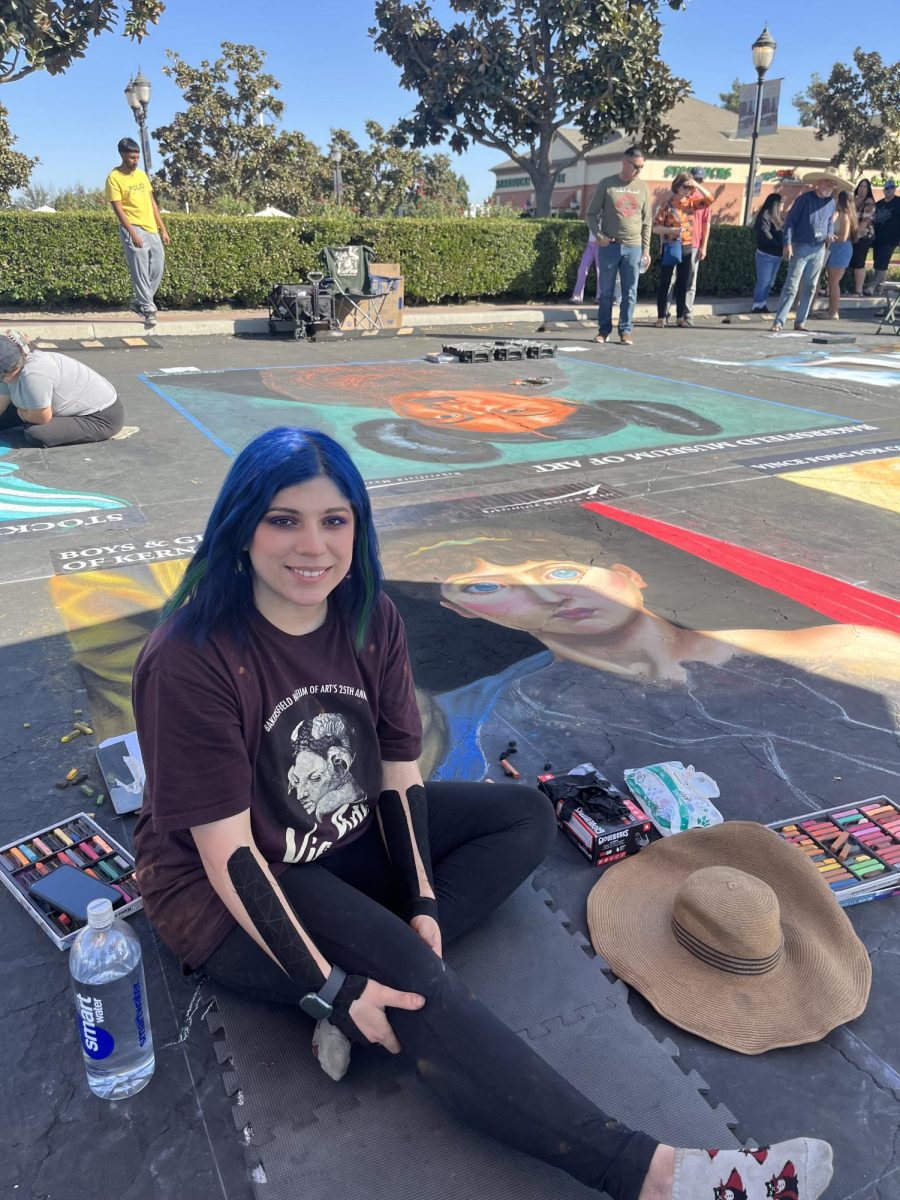Author of “Incarceration Nations: A Journey to Justice in Prisons Around the World” speaks at the CSUB Icardo Center
Dreisinger, an English professor at City University of New York’s John Jay College of Criminal Justice, has worked to increase higher education for incarcerated and formerly incarcerated individuals around the world through her founding of the Prison-to-College-Pipeline Program.
Dr. Baz Dreisinger signs her book, “Incarceration Nations: A Journey to Justice in Prisons Around the World,” for hundreds at CSUB’s Icardo Center.
November 9, 2018
Passion, purpose, persistence – those are the “three P’s” that Dr. Baz Dreisinger has clung to her whole career.
The 2017-2018 Global Fulbright Scholar reiterated her mantra in front of hundreds at CSUB’s Icardo Center on Oct. 30 when she explained the process of writing her book, “Incarceration Nations: A Journey to Justice in Prisons Around the World.”
Dreisinger, an English professor at City University of New York’s John Jay College of Criminal Justice, has worked to increase higher education for incarcerated and formerly incarcerated individuals around the world through her founding of the Prison-to-College-Pipeline Program.
But before it all, Dreisinger heard the same negativity from each of the many literary agents she went through to propose her famous project: “Nobody wants to read about prisons. It’s too grim.”
Finally, when one agent saw the importance in getting her work seen, Dreisinger hustled, and found every way to effect change on her expedition.
“Writing the book was… an incredible journey that took me to nine countries,” Dreisinger said of the experience.
Before ending the night with a book signing, the restorative justice pioneer told of her travels to the prisons of Australia, Brazil, Norway, South Africa, Rwanda, Thailand, Jamaica, Uganda, and Singapore.
Though her activism and writing has made an impact worldwide in the way people regard prisoners, Dreisinger still has concerns about the future of incarceration.
“There’s suddenly a reentry crisis in Rwanda,” she said.
And in January, Brazil opened the fifth of its supermax prisons, a trend that disappoints Dreisinger. According to her research, Brazil will soon surpass the U.S. in incarceration numbers.
Another country that has been radicalizing its prison system against Dreisinger’s beliefs is Australia.
“Australia has increased its xenophobic immigration policies because 100 percent of its immigration detention system is privatized,” Dreisinger said. “We are seeing a copycat trend here in the U.S. on that front. Trump has pointed to Australia’s immigration detention system as a model.”
Yet among Dreisinger’s own work with the Prison-to-College-Pipeline, there are still systems in place that give the author and activist hope.
Open prisons in Norway and Italy are what Dreisinger sees “as a potential future.” These free-range facilities provide authorized work to prisoners to make it easier for them to find work once released.
Also, the popularity of the topic of incarceration has increased since the 2016 publishing of “Incarceration Nations.”
“When I [used to] tell people I teach in prisons they would look at me as if I were insane and then [ask], ‘Why are you educating those criminals?’” she said. “I now get at least one invitation to go to a prison a day.”









Kimberly Hyde-Schmitt • Nov 12, 2018 at 7:21 pm
I don’t really see “rehabilitation” in most prisons. I think treating as criminals says it all. I wish our prisons, in the U.S., could find a way to treat them first, as human beings.